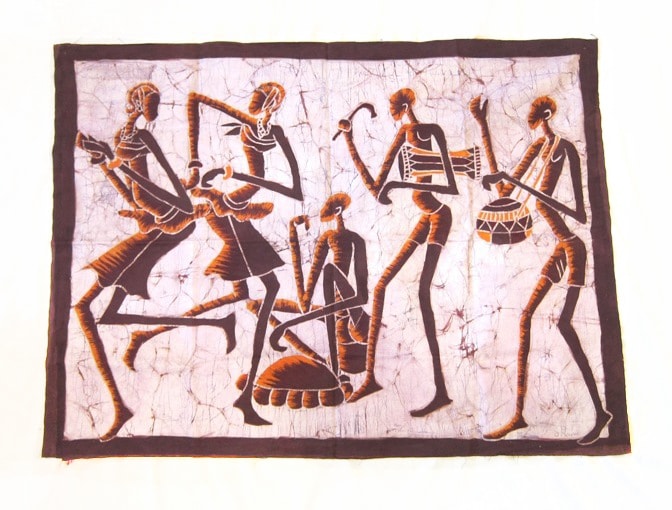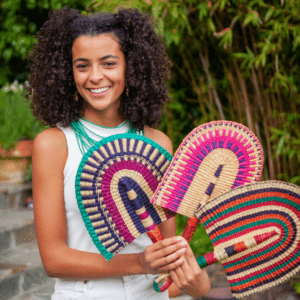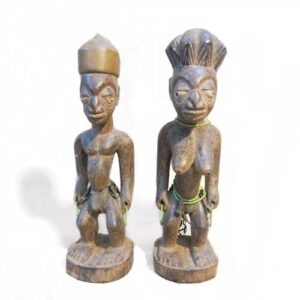Interesting Facts About Yoruba People | Bashiri
Interesting Facts About Yoruba People
The Yoruba are an ethnic group of southwestern Nigeria and southern Benin in West Africa who share a rich history and culture. This post discusses the history of the tribe, their special culture and language as well as some interesting facts unique to the Yoruba people.
We have a special selection of items from the Yoruba people available at Bashiri here.
What is Yoruba?
Yoruba is one of the three largest ethnic groups of Nigeria, representing over 20% of its entire population. Their heritage dates back thousands of years as the primary culture in Southern Nigeria since the 11th century. The Yoruba are a group of diverse people with a common language and culture.
How to Pronounce Yoruba
The correct way to pronounce Yoruba phonetically is as follows :
“yor” + “ruh” + “buh”
What Does Yoruba Mean?
The term Yoruba was originally used to describe those part of the Ovo Empire and not used until the nineteenth century. Numerous kingdoms were formed by the people and each had its own town centre or capital ruled by a king.
What Are the Yoruba Famous For?
The Yoruba are considered to be among the most skilled and productive craftsmen on the African continent. Yoruba bronze casting tradition is over 500 years old and the statues today are famous among collectors worldwide. The Yoruba’s reached a level of technical excellence in casting which was not matched in western Africa. African batiks were pioneered by the Yoruba peoples of Nigeria and the Wolof of Senega.
The Yoruba History
It is believed the Yoruba people migrated from East Africa to west of the Niger River over a thousand years ago. They became the most urbanized African people of precolonial times with numerous kingdoms centred around a capital. By the 17th century Oyo was the largest kingdom but did decline in the following two centuries owing to conflicts and invasions. The Ife kingdom is regarded by the Yoruba people as the place where their deities created humans and their spiritual home. View our ornate Bronze Ife.
Who Are the Yoruba People?
The Yoruba people are joined by their common language. About 75 percent of the Yoruba men are farmers, producing food crops for their domestic needs. Women help plant yams and harvest corn, beans, and cotton. While others are tradesman and craftsman.
How Old is the Yoruba Tribe?
According to Yoruba mythology, all Yoruba people are descendants from the hero Odua or Oduduwa. The Yoruba were the primary culture under many empires including Ife and Oye which date back to the 11th century. There have been several archaeological discoveries showing how their culture evolved.
How Large is the Yoruba Tribe?
It is reported that the number of Yoruba people exceed 40 million. One of the features which makes Yoruba people unique is their propensity to populate together in large city groups rather than small village groups. This has attributed to their growth in size.
Where Does the Yoruba Tribe Live?
The Yoruba homeland is located in west Africa, with most Yoruba living in Nigeria. The cultural region covers a total land area of 142,114 square kilometres. There are also some scattered groups in small neighbouring countries including Togo, Ghana, Benin and the Caribbean. Many Yoruba people have also moved into urban environments such as Lagos.
What is the Yoruba Language?
The language of the Yorubas, known as Yoruba, belongs to the Congo-Kordofanian language family. The language has many dialects, but most of its speakers are able to understand each other. The Yoruba language has extensive works of poetry, folktales, stories and proverbs. Batiks often portray these stories, including everything from marital status to political and religious beliefs and cultural tales.
Where Do They Speak Yoruba?
The geographical reach of the Yoruba language is from southwestern Nigeria to parts of Benin and Togo. In this area it is widely used as a second language. Yoruba is used in media formats such as radio and television as well as being used in education at primary, secondary, and university.
How Many People Speak Yoruba?
Yoruba is spoken by more than 25 million people. Most of these people live in Nigeria and it is one of the three official languages of this area. There are a substantial amount of literature today written in the Yoruba language including books and newspapers.
What is the Yoruba Religion?
The religious beliefs of the Yoruba worship three gods. These include Olorun, the sky god, Eshu, who is the divine messenger, and Ogun, the god of war. There are many more deities as well that are worshipped in different villages and these have an elaborate hierarchy. The Yoruba tell hundreds of folktales with the purpose of helping their people live wisely.
How Many People Follow the Yoruba Religion?
As many as 20 percent of the Yoruba still practice the traditional religion of their ancestors. A large number of modern Yoruba also combine traditional Yoruba beliefs with modern day religions such as Islam and Christianity.
Other Interesting Facts about the Yoruba Culture
The Yoruba are a very sociable and expressive people who commemorate major events with colourful festivals and celebrations. Weddings, naming ceremonies, funerals and even housewarming parties are celebrated in a lavish and ceremonial nature.
The Yoruba present the highest rate of twin births in the world. This may be because of high consumption of a specific type of yam containing a natural phytoestrogen which may stimulate the ovaries to release an egg from each side. Twins are very important for the Yoruba; they are given special names and inspire wooden sculptures. To view our special range of sculptures, click this link here.
What is Yoruba Food?
Traditionally the people of Yoruba eat with their hands whilst sitting on a mat on the floor.
The main foods which are eaten are grains, and fruits grown on their farms, complemented by vegetables as well as meat and fish. Cassava and yam flour is very popular as well as many different kinds of soups.
What is the Traditional Yoruba Clothing?
The Yoruba clothing is made by traditional weavers. One type is the Aṣo-Oke, which is a hand loomed cloth of different patterns and colours sewn into various basic styles.
For the Yoruba woman, a traditional outfit includes an Iro (wrap around skirt), Buba (a loose blouse), Gele (head-tie), Pele (shawl) and Iborun (scarf).
For the Yoruba male, their traditional outfit includes a Buba (a loose shirt), Shokoto (loose pants), Agbada (large robe) and a Fila (soft cap).
Traditional dresses are beautiful and full of colour which are usually worn a special events such as a wedding or naming ceremony.
Learn more about Bashiri
Our vision is to increase exposure for African artists in the burgeoning global market. Masks, Paintings, Artefacts, Textiles and Jewellery – every piece is hand crafted, original and tells a story about the everyday and the extraordinary, teaching us about the history and culture of the region.
At Bashiri, we believe in supporting and respecting the artists we buy from, doing business at local and fair market prices. We also get to know each artist and supplier personally, establishing rapport and learning about the pieces they create before purchasing.
We hope Bashiri’s presence will strengthen the appreciation and preservation of West Africa’s amazing culture. Follow this link to learn more about us.
Check our items from the Yoruba people as well as handmade African baskets from Ghana.




